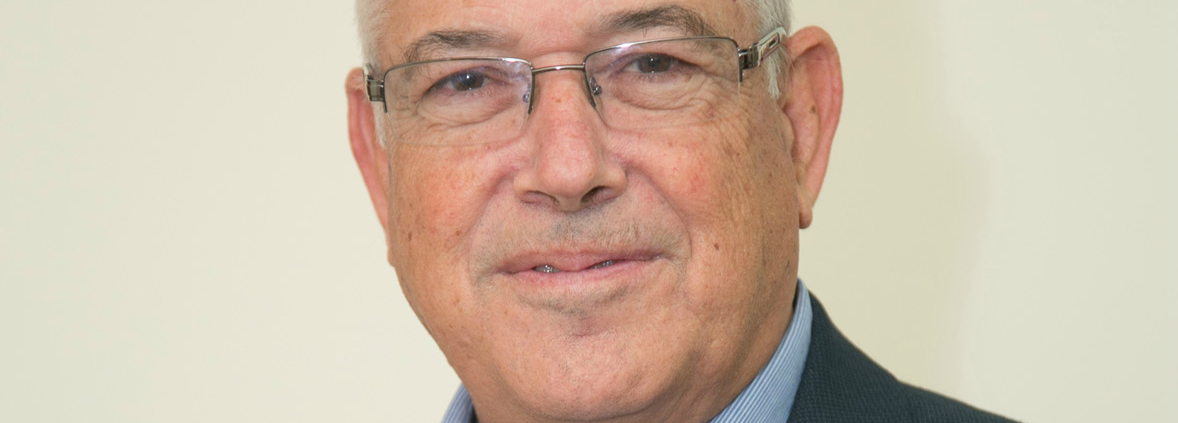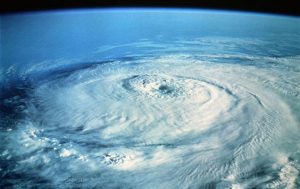Risk Management: Social, Economic, Social – Special Address to the International Insurance Society, Rio 2012
Prof. Kahane’s presentation at the International Insurance Society (Global Insurance Forum) prior to the signatory ceremony of the Principles for Sustainable Insurance treaty (PSI), Rio de Janeiro June 2012.
Introduction
Hello and welcome! As an IIS veteran I specially cherish the invitation and the privilege to be here with you today at the kick-off of the 2012 IIS Conference and the signatory ceremony of PSI treaty.
We have a few moments to speak about the most critical Social, Economic & Environmental risks we face today (What we call SEE). As risk managers, this is our area of expertise. I believe that the insurance industry must lead the world to a sober path of sustainability on this beautiful planet that we share.
The place where I stand today, and where I invite you to stand with me, is that we are at a critical choice-point for the well-being of our planet. This choice point is not a “nice thing to do” or a “gee, wouldn’t that be nice thing to do someday”. It is rather a ringing of the FIRE ALARM. Quite literally, our “global house” is on fire.
“Give me a place to stand, and I can move the Earth.” –Archimedes

As you can see from the top of each slide, we shall talk about “Reboot”. It is a critical thinking technology. My colleagues and I have developed it in order to move us forward into a quantum leap of solving our shared, global problems. We sometimes need unconventional approaches and a fresh look at things in order to reach novel solutions for the issues that vex us.
During my long and happy career in the insurance industry, I have often used insurance instruments as leverage for handling challenges in what seemed to be unrelated topics.
A quick example is when a very small group of us, all insurance experts, collaborated on establishing agricultural insurance plans for Latin America. The policies served as collaterals for private loans to the farmers. This fulfilled the missing link, connecting advanced technologies with the needed financing, and made the US AID program successful. It generated a remarkable increase in the agricultural output of the entire continent at the beginning of the 1980s.
Paradigm Shift
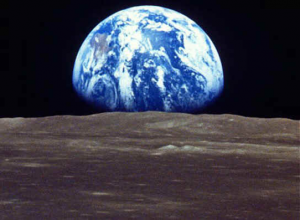
President Kennedy’s 1961 stand that the USA will send a man to the moon by the end of the decade, triggered the greatest paradigm shift of our age. It was the first time, in 1969 – only 4 short decades ago – that we first saw “earth rise” on the moon. It was the first time ever we “saw ourselves” as one little planet in the middle of nowhere.
In that moment, thousands of possibilities that we had never before seen, opened up on the road in front of us. And in the following four decades we have seen advance after advance that have connected us together. This is the post-industrial technological revolution that reshaped the world.
We are now connected through via satellites to a web of knowledge and conversations. We have the internet, mobile phones, computers, Facebook, TED Talks, YouTube and Wikipedia! What an extraordinary world we live in!
My first flight was in 1968, at the age of 24. This trip to the US felt like a time machine to me! McDonalds had just made a big leap, and sold a few million burgers… Three years later, the most important information on my business card was my telex number. Now we zip around the world in no time at all with our virtual connections… Amazing!
Exponential Growth when Doubling Doubles

The Industrial and Post-Industrial revolutions, for the first time triggered and accelerated the change processes on our planet. Many of these processes are exponential.
An exponential process means roughly constant rate of change. It takes a while before it becomes noticeable. But at a mature stage the absolute level of change “snowballs” and may become dramatic
Over time, an exponential growth or decline process resembles the shape of the “Hockey Stick”. This effect is made clear by the example of fast growing bacteria in a Petri dish. The first doublings are no problem because the dish can accommodate much more than this. However: just before the final doubling – the one that will hit “full” capacity – the dish is only half full, and 3 doublings earlier, it was only 7% full.
Global Population Trends
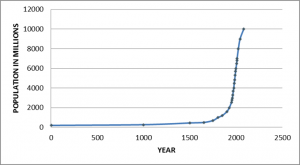
Let’s talk about something you all know: Global Population trends.
For millenniums, our population and its growth were very small. Around 1800, world population has reached the 1 billion level. In 1900, only one hundred years later, we already had 1.6 Billion. And a hundred years after that, we hit 6.1 Billion. That is the Hockey stick.
In the last century the net change was 4.5 Billion people!
Until recently, one of our leading paradigms was that our “Petri dish” was sparsely inhabited, LARGE and EMPTY, PLENTIFUL and seemingly endless. And then … boom, exponential growth became explicit in our lives.
Suddenly, our planet, is almost full.
In a crowded environment, mutual INTER-dependency among people is complex and great. And to govern such a crowded place, with all the inherent pressures, and still be attentive to the various individual and social needs and desires, requires a new kind of democracy – one that will make use the modern means of connection and communication.
Economics
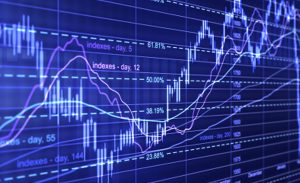 In the Economic arena we are also surrounded by many hockey stick models:
In the Economic arena we are also surrounded by many hockey stick models:
Think about growing consumption, about urbanization, about the use of energy, to name a few. In 2007, for the first time, global statistics showed that more than half of us lived in urban areas. Our giant mega cities make city-dwellers the most vulnerable of species. They must buy and transport almost everything they consume.
For example, we are vulnerable to our energy needs; imagine there being no electricity for an entire day here in Rio or in the city where you live – now stretch that to living without electricity for an entire week: No food, water, transportation, communication, refrigeration, computers, internet- a real catastrophe. Not pretty!
We are depleting all our resources at a tremendous rate. We burn oil like there is no tomorrow. 200 years ago, most people didn’t have oil, and didn’t know what to do with it, except for using it to grease their wagon wheels. (In ancient time tar was used to mummify corpses.)
Within the short span of 150 years, we’re close to depleting all of Earth’s oil reserves.
Environmental
 We see similar hockey sticks (rising and declining) in the environmental arena:
We see similar hockey sticks (rising and declining) in the environmental arena:
Glaciers are melting, fresh water is disappearing and getting polluted. Air pollution. Waste accumulation (going up). Arable land is washed away because of deforestation and poor care of top soil.
In the past 4 decades we’ve destroyed 80% of all ocean fisheries. We’ve destroyed 30% of all plant and animal species, and substantially damaged delicate food chains, and the entire eco-system.
Micro-organisms in the oceans that supply half the Earth’s oxygen, are in critical danger.
The Perfect Storm
With the combination of all these processes, we are nearing to a “perfect storm”. We are reaching the Petri Dish limits and if we don’t do anything … well, you do the math. It’s pretty simple.
The harshest of all the truths is that regardless of what we humans do to the planet, Earth will survive. We, on the other hand, may get booted out from the game by Mother Earth. We are playing the game of our lives!
Do you hear any alarms ringing?
Somebody may find our remains in an archaeological dig many centuries from now and wonder:
“What were they thinking?”
“Didn’t they realize they were doing this to themselves?”
“I hope we are not that short-sighted.”
We shall see.
While our economies grew and our material environment has flourished, we didn’t pay attention and neglected our ecosystem and the environment. We can’t live without it. Try living for a week without water or food…
We must find ways to decouple economic growth from environmental damages. It is possible to be a rich and clean country. A Poor country becoming a rich country, doesn’t have to go through a rich and dirty stage! It should go directly to the rich and clean stage!
Environmental Challenges = Great Economic Challenges
- Destruction of the Essential Ecosystem
- Global Climate Change
- Loss of Biodiversity
“Humans are the most dangerous animal in the zoo.” Yann Martel
Global climate change is a serious economic issue. It is estimated that it annually costs between 5-20% of the global GDP. Still, it is not the most important environmental issue!
The loss of the ecosystem, is an even grander and more serious problem.
And the rapid loss of biodiversity means lost flexibility and resilience. It is probably the greatest of all. So critical is biodiversity, that the United Nations declared 2011 to 2020 the Decade of Diversity.
A less diversified environment is equivalent to holding an undiversified financial portfolio. But when we talk about the effects on a global level – this has an awesome, negative impact!
For example: Most of the world’s production of the major crops comes from just a small number of varieties (in comparison to the tens of thousands varieties that were grown until just a few decades ago). it is just a matter of time until certain virus, fungi or bacteria, that feed mainly on these varieties, will develop. A realization of such risks can be demonstrated with the case of the Irish Potato Blight of 1846. Reliance on just two potato varieties, both vulnerable to the blight, resulted in the deaths of one million people and emigration of another million from Ireland.
Can’t We Just Borrow?
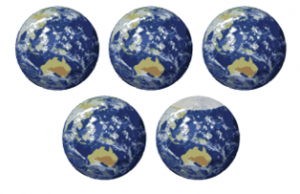
In order to treat these problems, we must urgently shift the paradigm of how we see ourselves. What’s the sense of doing business if we are destroying our environment? We have to change the ways we do business! We have to find ways to stop the destruction and reverse the damage of these trends.
Research shows that the average persons living in the developed world use ecosystem services that are 3-5 times larger than their share in the available bio-capacity.
There are five earths on this slide. If every person on earth lived at the same style, we would need 3-5 earths to sustain us. But alas, unlike a family that can finance temporarily living beyond its means, by borrowing or selling some assets that cannot be done at a global level. Unfortunately, we know no nearby planet that can offer help…
What does the Invisible Hand do now?
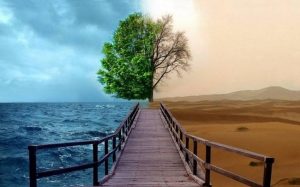
The invisible hand that guides our capitalistic systems was supposed to automatically reach an overall optimization of allocation of resources in the economy.
In a global economy, what will that Invisible Hand guide us to do next?
Look at the options on this slide. In which direction do you hope the Invisible Hand moves us?
How We Got Here Doesn’t Matter
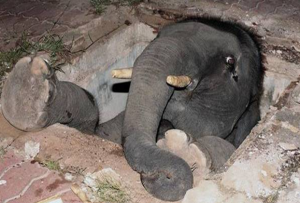
Although there are many places we can point our fingers to place blame in the right places and into the right markets, the truth is that it no longer matters how we got here.
All that matters is that we get out!
It is an old (I believe it is Chinese) proverb that says that “The best time to plant a tree is 20 years ago, and the 2nd best time to plant a tree is today.”
Many actions we could have, should have taken twenty years ago. But how we got here and what we did or didn’t do no longer matters, except as lessons for the future.
Capitalism
- Narrow View (Cradle to Grave) – Land, Capital, Labor
- Broad View (Cradle to Cradle) – Land, Capital, Labor
+ Information + Technology + Renewable Resources + Preservation
What we are dealing with today are the results of Narrow Capitalism. We have to extend our view to Broad Capitalism.
The simple, narrow formula is the one we all know: Land + Capital + Labor. Our “common property”, is not properly represented in the game, it has no real price and is therefore regarded valueless. It has therefore been embezzled and misused.
Moreover, the only assumed goal of the system is to maximize each players’ wealth, disregarding other values like justice, education, health, the environment, cultural issues, etc.
We find that the Invisible Hand of the Narrow View of Capitalism is about to wipe us off the chessboard. We are at the beginning of the perfect storm and are paying very little attention of the alarm bells ringing all around us every day. We can hear them if we just listen a bit more diligently.
I say we must adopt a New broader Capitalistic Model. In this one we have a new production factor – information and know how. Unlike the traditional factors it is unlimited and can grow.
We have to utilize energy sources that are renewable. The sun can supply in 8 minutes the total energy we currently need annually.
Nobody Can Do Everything, Everyone Can Do Something
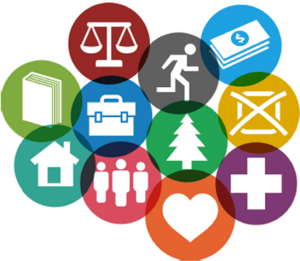
There are countless things that we must do and that we must do quickly. It doesn’t really matter what you do, just everyone do something and start doing it today. And it is clear that we are allowed to err.
The finite goal is to contribute POSITIVELY to the environment (metaphorically we should Plant a tree a year, while making sure that we are not generating a monoculture…). At an interim stage it is needed to stop the waste, and reduce our energy, water, mineral consumption (what is called Eco-Efficiency, Industrial Ecology, etc.. This may give little more time to find better solutions.
So many things to be done, it is practical job security for every single person on this planet. Imagine – a fully, gainfully employed planet. It makes my heart smile.
3 Points of View
- What problem / there is no problem
- It is not MY problem…
–Somebody else should fix it (Governments/NGOs/Bill Gates?)
- I am part of OUR problem
–What can I do?
At this point in my presentation you probably have one of three points of view:
The first is that you really don’t see that a problem exists – maybe it is something invented by the weird tree huggers? By the media or by people who just want to take the food out of our mouths and money out of our pockets.
The second is that yes, you do see that there is a problem, but it’s not YOUR problem. It should be solved by governments, or NGOs, or maybe by Bill Gates and other billionaires who have ample idle money and time on their hands to spend
And third, and I believe this is the most powerful, but frankly, also the most challenging, view: to recognize that this IS YOUR home, this is YOUR legacy, this is YOUR risk to manage and you commit to being part of the solution – EVEN IF YOU DON’T YET KNOW what challenges and commitments you will face in your path.
If this is OUR problem, what do WE do next, and what can I do now?

For those of you who do believe that this is OUR problem, I’m sure you are already taking actions.
Several years ago people did an experiment in Sydney Australia, and this is now repeated in many towns around the globe. They turned off electric switches at a particular moment, just to demonstrate that it is quite easy to reach a significant joint effect, even where everyone is doing only a minimal effort.
You can easily have a larger impact when your businesses will cut electricity, air conditioning, paper consumption etc. Leaving a positive impact requires more thinking, more effort, much creativity and innovation, and strong leadership!.
For those of you who are on the edge, not quite certain that any of this is real, I urge you to take the first step of any discovery: be curious. Do some of your own research and see what there is to see.
REBOOT
- RELook
- RELearn
- REThink
- REDesign
- REStart
What Reboot urges us to do is to look at our world with fresh eyes, while removing screens that distort our view. This is an essential step towards a Paradigm shift.
Maybe some of you saw the movie AVATAR. It describes a shift from a two dimensional black and white reality, into a three dimensional colorful world. This is a paradigm shift. It has to start from a new point of view.
We must Re-Look at what’s in front of us, we must Re-Learn about our place in the global web of humanity. We must think differently about our challenges and then Re-Design how we live and what we consider to be profitable.
And, as in any solid Reboot, we must Re-Start – that is, to start doing things differently.
And only then if you get tired, you can Re-tire…
We can’t teach you this in 20 minutes. However it can be done in 2-3 days workshop.
Insurance and Financial Sectors
- Most sustainable investment projects are long term
(They perfectly meet the needs of pension funds). - Focus on Investments that are supporting the Reboot processes around the world
- Investing in “non-green” could, retroactively, be disastrous to the lender
- We need to remove obstacles
- We must develop new indices
The insurance industry could be world leader by focusing on sustainable wealth for the long run. This is the point where insurers can play a major role, due to their special expertise. Insurers, like everybody else could do the regular tasks of cutting energy consumption and use of paper, etc.
However, they can do more than that: Insurers and pension funds are the only ones still having money to invest and they are interested in the long run. All the environmental projects need long term investments. Start early and start now. Vote with your policyholders funds to save their and yours world.
It pays. The investments in environmentally unfriendly industries – that for a whole seemed more attractive, didn’t pay. Remember the retroactive suites in the asbestosis and toxic spill cases? We have just experienced a judgment against several financial institutions that had to finance the clean-up cost of a failing industry. The fact that they were the creditors and lost all money didn’t help them to defend the case. They were found negligent in lending money to a risky plant!
A recent OECD reports estimates the annual need for long term funds, just for new energy projects, by $2 trillion! And at least $1 trillion of it cannot find the funds. There is a need, of course, make big changes in the regulatory requirement like Basel III and Solvency II, to enable changing he focus of the industry 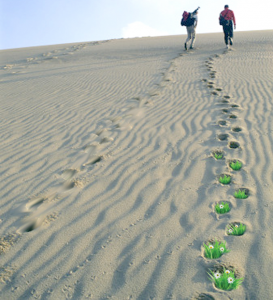 from reporting on short term rates of return on investment, and on investments in only marketable securities. It is about time to let the insurers regain their traditional business.
from reporting on short term rates of return on investment, and on investments in only marketable securities. It is about time to let the insurers regain their traditional business.
The Best Time to Act is Now
Sustainability means leaving no footprints. At this point it is too late- as we have to clean the results of yesteryears’ actions. We have to find the way to go beyond sustainability, and to leave POSITIVE footprints.
If we learn from our mistakes, we are geniuses. If we don’t learn from them, we are fools …
Remember this guy?

… Like this guy!
Do you recognize the ancient face of Nero? Nero was the Roman Emperor who lives in infamy as the guy who fiddled while the city of Rome burned.
But aren’t we behaving the same way? The hair on our heads is burning, yet we are still having business as usual approach. We have to be ever alert and mindful of the Nero in Us All – denial will not help, ignoring the problem will not help. We must not just play with our fiddles, we must help to put out the fires.
I hear the fire alarms ringing all around me every day … That is why I changed my focus years ago to the environmental risks.
Wangari Maathai – I am only One.

Yes, none of us can do or fix everything that needs to be done or fixed, but we can all do something.
Like our dear late colleague, Dr. Wangari Maathai. Raised in a small village in Kenya, she went on to become a Nobel Laureate for the extraordinary work she has done to save the soil and, plant millions of new trees in Kenya and Africa. She helped shape a huge political movement that empowered women, and made an enormous political impact that restored democracy in her country.
She was only one, I am only one, You are only one.
Yet, we ARE one – so while we are here, let us all do what we can to help heal and sustain our beautiful, fragile earth!
“You don’t drown from falling in the water. You drown by staying there.”
-Edwin Louis Cole
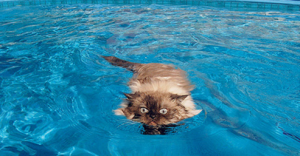
I leave you with a few thoughts about the challenges we face.
Rev. Ed Cole said it well. Falling in the water doesn’t drown us – it’s staying there that does the trick.
Let’s not stay in the water too long and drown.
Rio Summit 1992
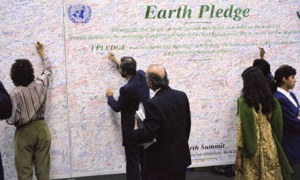
Here in Rio in 1992, was the first time that we had a truly global conversation about what must be done and it starts with a simple pledge that unifies us all.
This week the UN summit re-convene here (I am a member of the Israeli mission). UN secretary, Mr. Ban Ki-Moon would address to us here on the same issue, during the signatory ceremony of the PSI treaty.
The Earth pledge is:
“We pledge to help make the Earth a secure and hospitable home for present and future generations.” Even though I don’t know how, I pledge this. Even though I cannot do it alone, I pledge this.
I believe Heaven will be pleased when we succeed and weep for us if we don’t.
THANK YOU!
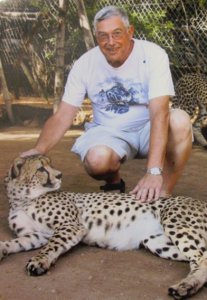
Thank you for your attention and your generous listening. I hope you all visit our non-profit site where we explore what is needed and what is being done around the world.
As this conference proceeds, I look forward to meeting you so that together, we can discover how to lead the world into a new chapter – the Re-Start after the Re-Boot.
Thank you.

